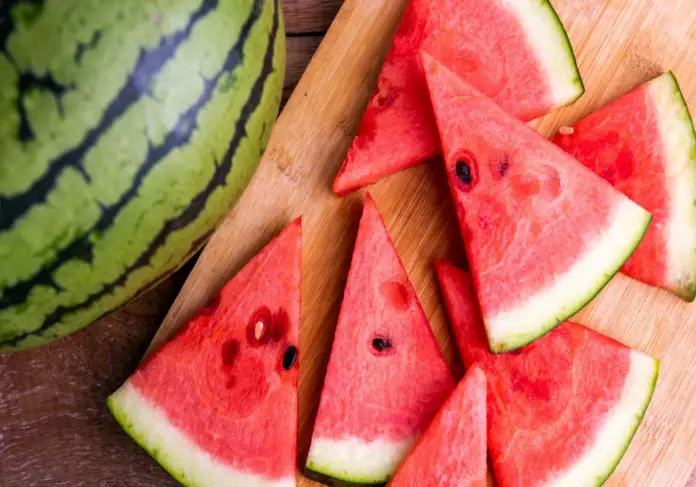New York: Watermelon is a favourite fruit during summers but excessive consumption of it could be deadly for some individuals as it contains a significant amount of potassium.
According to Arab media reports, a new series of studies highlight how watermelon despite being a summer fruit with 92 percent water content could pose health risks if eaten excessively.
According to a report in the Annals of Internal Medicine, one group of studies has identified an unknown issue with watermelon consumption due to its astonishingly high potassium content. While potassium usually doesn’t pose a problem for most people, it could be a concern for individuals with chronic kidney disease especially those with CKD Stage 4.
Chronic kidney disease refers to all kidney issues, affecting the organ’s ability to filter blood and remove waste efficiently. About 9 out of 10 cases of kidney disease go undetected.
Potassium is essential for all cells as it regulates heart rhythm and ensures that muscles and nerves function properly. It helps maintain a regular and smooth level of fluid inside cells.
The normal blood potassium level for adults ranges between 3.6 and 5.2 millimoles per liter (mmol/L). Potassium levels below 3.5 mmol/L are considered low, while levels above 5.5 mmol/L indicate an infection termed “hyperkalemia.”
Both low and high blood potassium levels pose a potential risk to life. While mild hypokalemia (low potassium levels) may not show symptoms, potassium levels reaching 6.5 to 7 mmol/L could be dangerous especially for those suffering from long-standing or chronic kidney disease. Such individuals may not exhibit symptoms of high potassium levels putting them at risk of reaching dangerously high levels.
Rich sources of potassium include dried fruits, apricots, raisins and dates while bananas are the most popular fruit rich in potassium. Potassium is also found in potatoes, spinach, tomatoes, broccoli, milk, meat, poultry, fish, lentils, beans and soybeans.
Potassium intake is linked to low blood pressure, heart disease and stroke. The World Health Organization recommended in 2023 that adults increase their daily potassium intake to at least 3,510 milligrams per day.
Baked medium-sized potatoes provide 925 milligrams of potassium while half an avocado provides 490 milligrams. One portion of salmon approximately 80 grams yields 534 milligrams of potassium.
It is essential to note that high potassium levels could be life-threatening for individuals with compromised kidney function.







